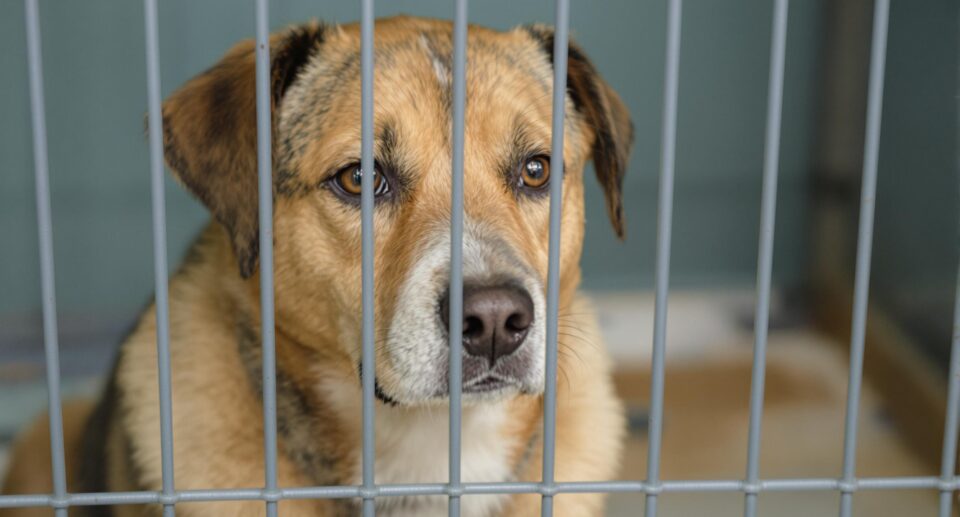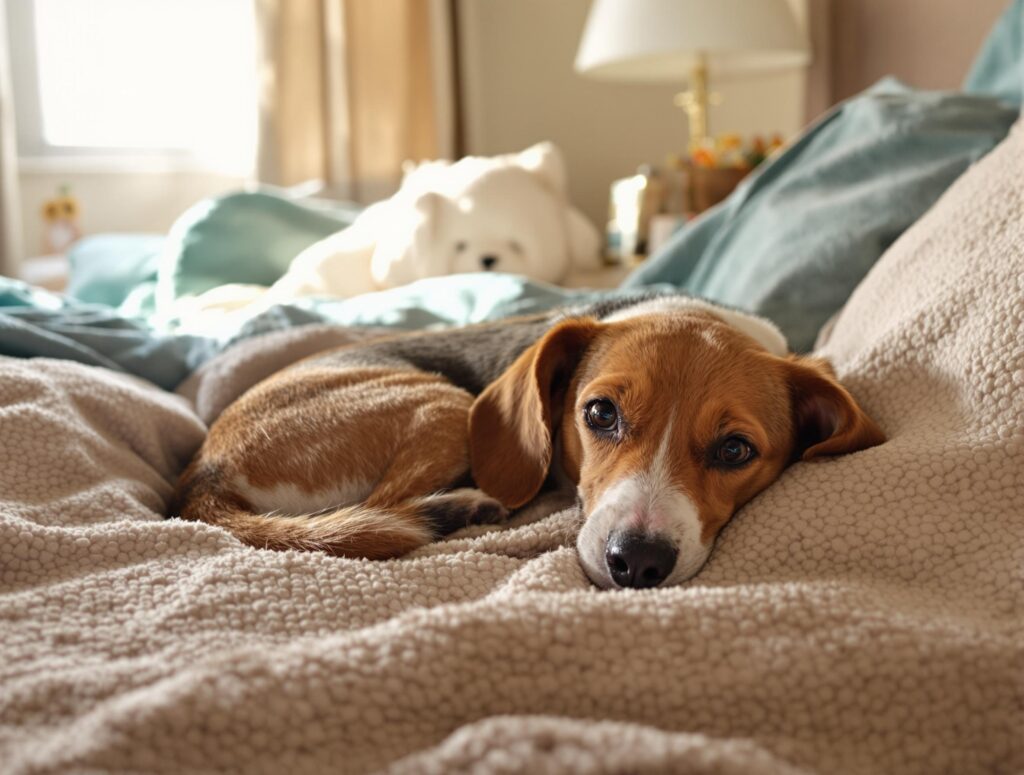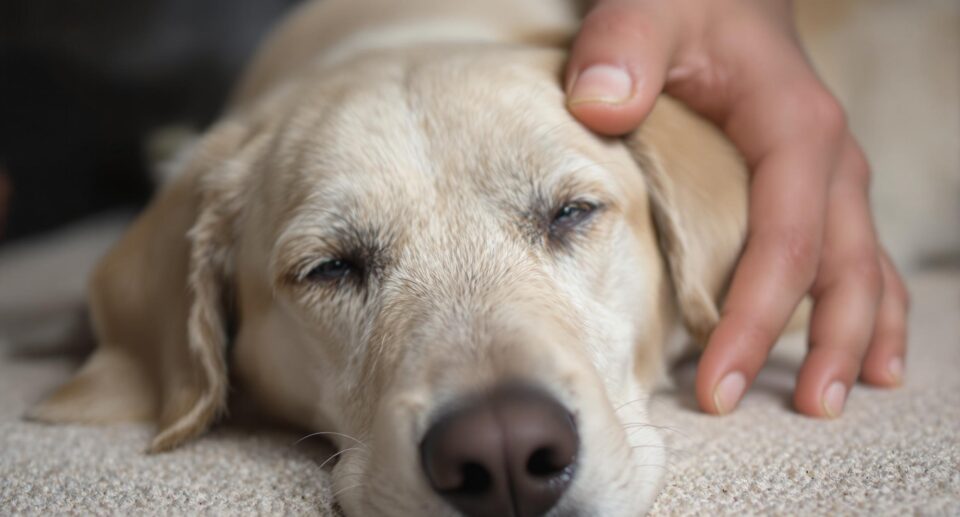Kennel Cough Symptoms in Dogs: What to Watch For

Key Takeaways
- Kennel cough is a common respiratory issue in dogs that can spread rapidly in places where dogs interact, like parks or grooming facilities.
- Early recognition of symptoms, such as a distinctive honking cough and changes in energy or appetite, is crucial for adequate care and prevention.
- Preventive measures, including regular vaccinations and wellness checks, protect dogs, especially puppies and those with compromised immune systems, from kennel cough.
That strange honking cough in the middle of the night is enough to send any dog parent sitting up in bed. If your pup sounds like they have swallowed a squeaky toy or started mimicking a goose, you might be dealing with kennel cough. Despite its name, kennel cough is not limited to boarding facilities. It can show up anywhere dogs mix and mingle, from local parks to daycare or the groomer.
Knowing kennel cough symptoms in dogs can help you take early, informed action. Most otherwise healthy pups recover within a few weeks with rest and support. Spotting the signs early and talking with your vet can help avoid complications for puppies, seniors, or dogs with underlying conditions. PetHealthMD offers guidance to help you understand what to look for and how to support your dog’s recovery.
Recognizing Kennel Cough Symptoms
Symptoms of kennel cough usually develop three to four days after exposure to the virus or bacteria that cause it. This incubation period makes it tricky, since a dog may seem completely fine at the dog park but start coughing days later.
Spotting kennel cough symptoms early helps you respond quickly, protect other pets, and ease your dog’s recovery. Though the illness is often mild, it is highly contagious, so catching the first signs makes a real difference.
1. Persistent Honking Cough
The most common sign of kennel cough is a dry, forceful cough that sounds similar to a goose honk. It may come in short bursts or long fits, especially after activity or pressure on the throat. Some dogs may gag or retch at the end of coughing fits or show signs of throat discomfort.
2. Nasal Discharge and Sneezing
Kennel cough often causes mild upper respiratory symptoms, including a runny nose. The discharge is usually clear or white, and repeated sneezing may appear alongside coughing.
3. Reduced Energy or Playfulness
Dogs fighting kennel cough may seem more tired than usual, nap more frequently, or hesitate to join in on their favorite games. These subtle changes are worth noting.
4. Loss of Appetite or Interest in Water
Some dogs with kennel cough experience reduced appetite or reluctance to drink water due to throat irritation. If your dog consistently turns away from food, contact your vet.

What to Do If You Notice Kennel Cough Symptoms
If your dog starts showing signs of kennel cough:
- Limit their exposure to other dogs.
- Keep them calm and comfortable.
- Avoid collar pressure by switching to a harness.
- Contact your veterinarian to confirm the diagnosis and get treatment guidance.
When to Call the Vet
Most healthy dogs recover from kennel cough within 10 to 14 days with rest, hydration, and supportive care. However, some symptoms may signal that your dog needs additional support:
- Coughing that worsens or does not improve
- Lack of interest in food or water
- Lethargy or signs of fever
- Labored breathing or unusual chest sounds
Effective Prevention Strategies
Keeping your dog healthy does not have to be complicated. Consistent habits can greatly reduce the risk of kennel cough.
Work With Your Vet
- Vaccinate against Bordetella, a common cause of kennel cough.
- Book regular checkups every 6 to 12 months.
Explore wellness essentials at PetMeds.
Build a Healthy Home Environment
- Keep your dog’s space clean.
- Support their immune system with good nutrition and rest.
Practice Safe Socializing
- Visit dog parks during quieter hours.
- Choose well-ventilated facilities.
- Be cautious during the winter months, when kennel cough cases tend to rise.
Frequently Asked Questions
Can people catch kennel cough from their dogs?
Healthy people rarely catch kennel cough. Those with weakened immune systems should take precautions, such as wearing a mask and washing hands frequently.
Will kennel cough affect my dog’s health long-term?
Most dogs recover completely within one to two weeks. Senior dogs, puppies, or dogs with other health conditions may need extra monitoring.
Is kennel cough more serious for certain dogs?
Yes. Puppies, seniors, and dogs with chronic illnesses or weakened immune systems may be at higher risk for complications.
Can my dog get kennel cough even if vaccinated?
It is possible. The Bordetella vaccine reduces the severity of symptoms but is not fully protective.
Protecting Your Dog From Kennel Cough
Kennel cough is a common concern, but with the right habits, it can be managed confidently. Staying updated on vaccines, maintaining a clean environment, and scheduling regular vet visits all contribute to prevention.
Your vet is your best partner when building a prevention plan. If symptoms develop, early action makes a big difference.PetMeds helps you stay prepared with medications and wellness essentials delivered to your door. Visit our dog category for all your essential supplies.





